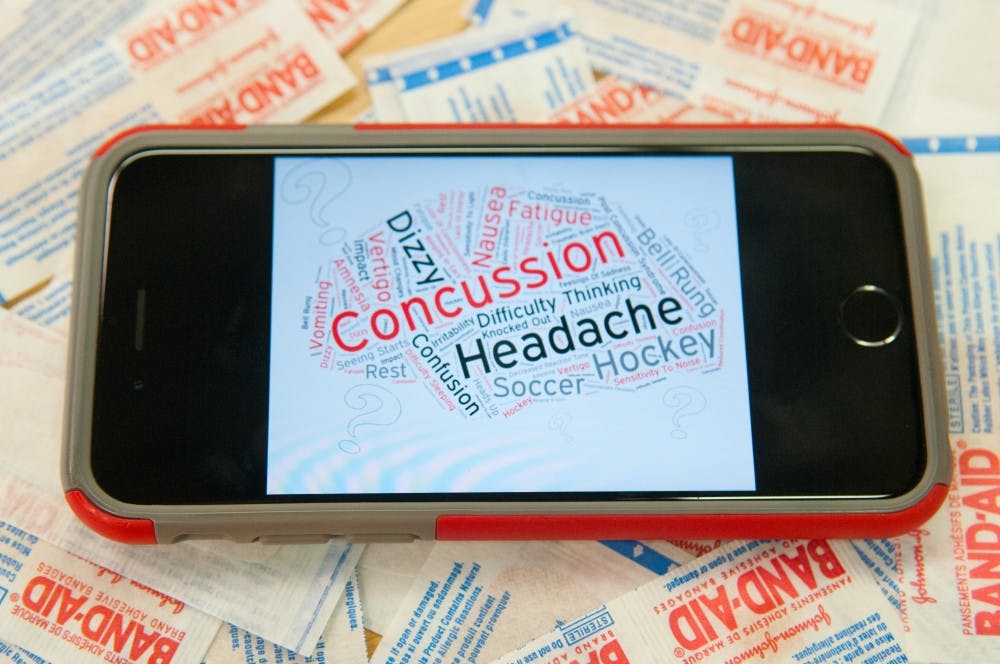
Researchers from Penn Medicine and CHOP have developed a method of tracking concussions with iPods by studying young CHOP patients.
Credit: Zach SheldonNew research into the understanding and possible treatment of concussions has been uncovered at the Perelman School of Medicine, all with the help of some iPods.
A team of researchers from Penn Medicine and the Children’s Hospital of Philadelphia conducted a study of 34 children at CHOP who had recently sustained concussions, aiming to determine the feasibility of the real-time activity monitoring of concussion patients.
Douglas Wiebe, lead author of the study and associate professor at Penn’s Medical School, said the motivation for the study came from a noticeable gap in evidence about the correct way to treat a concussion.
“The best guidance doctors can give kids right now is typically rest, cognitive and physical rest, and see how you’re feeling. But there’s no good basis to say that this is the best thing to do,” Wiebe said.
The study aimed to fill this gap by gathering real-time data on the physical and cognitive activity of concussion patients, and in doing so, determine how feasible and reliable such a method of gathering information, called ecological momentary assessment, truly is.
To gather the real-time data, Wiebe and his co-authors developed a protocol, the key to which is an app given on an iPod touch to participants in the study. The app will chime three times a day at random, and will prompt the the patient to report how they’re feeling on a long list of symptoms, including headache, sensitivity to light and nausea.
“If we just asked kids to go to SurveyMonkey at the end of the day and report how they feel, it wouldn’t be as effective. Concussion symptoms can be really fleeting and can change over the course of the day. If we just ask once for recall, recall may not be good, and also it may be hard to answer because sometimes they felt good and sometimes they didn’t,” said Wiebe. The app pings people in real time and captures them in real life, thus providing more reliable and accurate data.
The app also gathers data on physical and cognitive activity throughout the day. Patients wear an accelerometer that measures their step count and their sleep, and at the end of each day the app prompts them to answer questions about their cognitive activity, such as whether they went to school that day, how much time did they spend reading, how many texts they sent and so on.
The goal of the study was achieved: Researchers managed to accurately test the feasibility of ecologic momentary assessment.
“All of the kids were engaged, they all wanted to provide us with good data, they all returned the iPod touches at the end of the study,” Wiebe said. Now that it’s been tested, the researchers will now move on to use such protocol in larger studies.
Some of the study results even differ from existing wisdom. The study’s pilot data indicates that more physical activity on one day corresponded with lower symptoms on the next day, which is different from the impression in the field.
“That viewpoint was never really based on data,” Wiebe said. “People just haven’t monitored patients on the fly like this before.”
The Daily Pennsylvanian is an independent, student-run newspaper. Please consider making a donation to support the coverage that shapes the University. Your generosity ensures a future of strong journalism at Penn.
Donate



